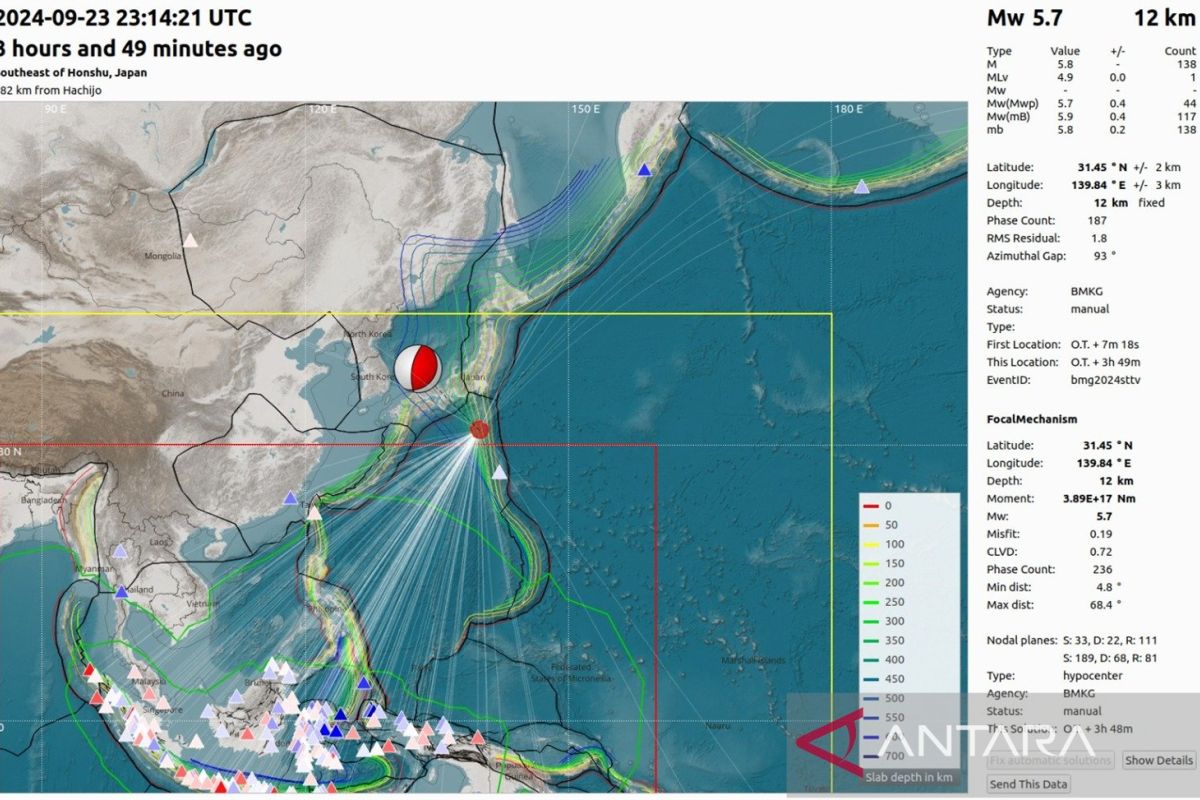The Meteorology, Climatology, and Geophysics Agency (BMKG) has confirmed that the earthquake and tsunami that struck the Izu Islands, Japan, did not pose a threat to Indonesian territories.
In a press release issued in Jakarta on Tuesday, head of the BMKG's Earthquake and Tsunami Center, Daryono, said that the 5.7-magnitude earthquake occurred at 6:14 a.m. Western Indonesia Time (WIB).
It was caused by plate subduction activity in the Izu-Ogasawara megathrust zone and had a thrust fault mechanism, he added.
The earthquake's epicenter was located in the sea at a depth of 12 kilometers, approximately 180 kilometers south of Hachijo Island, one of the largest islands in the Izu Islands of Japan.
"The earthquake was classified as shallow but did not affect Indonesian regions," Daryono said.
The Japan Meteorological Agency (JMA) issued a tsunami warning for Izu Islands. After the earthquake, a small tsunami was observed in several parts of Izu Islands, but it did not cause significant damage.
BMKG conducted tsunami modeling using the TOAST system and determined that the earthquake posed no tsunami threat to Indonesia.
The agency advised Indonesian citizens to remain calm as they were not at risk from the disaster.
Editor : Vicki Febrianto
COPYRIGHT © ANTARA News Jawa Timur 2024

